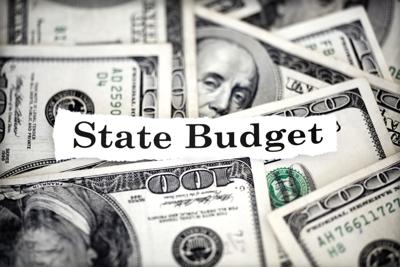◆ Budget included $430 in reductions, No tax increases.
On Monday, March 30, the Wyoming Legislature approved a balanced budget that significantly reduces government spending in response to historic revenue shortfalls created by the pandemic and declining coal, oil and natural gas production and prices. The bill (HB 001) passed with broad bipartisan support in both the House (57-4) and Senate (26-3).
The bill includes approximately $430 million in spending reductions—about 96% of the $446 million recommended by the Joint Appropriations Committee. It contains no tax increases.
At the same time, the bill preserves funding for services critical to Wyoming’s vulnerable populations and investments to continue to strengthen and grow our economy, including: the Department of Health and the Department of Family Services; the University of Wyoming and the state’s Community Colleges;
Carbon Capture, Utilization and Storage (CCUS); the UW cryptocurrency matching program and advisory council; and the Permanent Wyoming Mineral Trust Fund, an investment account that will continue to produce returns for the state.
The budget was rigorously debated and amended by both chambers, including 24 amendments made by the House and 16 by the Senate. The Joint Conference Committee ultimately adopted six of the House amendments, three of the Senate amendments and compromised on 10 other amendments.
The final budget is the product of principled compromise that struck common ground and achieved the priorities of both chambers. It promotes fiscal accountability and transparency and continued economic growth and development, which Wyoming voters expect of their elected officials.
By the Numbers
• The budget reduces State spending by $430 million, which includes across-the-board reductions to nearly every government-funded program.
• The bill restores nearly $14 million of funding to the Wyoming Department of Heath and the Wyoming Department of Family Services ($13.4 million and $385,000, respectively).
• Secures $10 million for Carbon Capture, Utilization and Storage (CCUS) development, which is critical to support Wyoming continued success as a national and global energy leader.
• Provides $16 million from the General Fund to the University of Wyoming and our state’s community colleges ($8 million to each)
• Provides $4 million from the Strategic Investments and Projects Account (SIPA) to the University of Wyoming’s matching program for cryptocurrencies.
• Directs $94.9 million to both the Permanent Wyoming Mineral Trust Fund and the Common School Permanent Land Fund through transfers from the One Percent Severance Tax Account ($128.8 million) and the State Penitentiary Cap Con Account ($61 million).
Background and Context
Wyoming faces historic structural revenue shortfalls, which owe chiefly to declining coal, oil and natural gas production and prices, which have long been the State’s primary source of public income.
• Last year the Legislature approved the largest spending reductions in the state’s history.
• The State’s fiscal profile in January estimated the total shortfall for the current biennium at $171 million, which was expected to grow to $721 million by 2023-24 and $985 million by 2025-26.
• Ahead of the Legislative Session, the Joint Appropriations Committee recommended $446 million in spending reductions.
The budget approved by the Legislature achieves nearly all of the reductions recommended by the Joint Appropriations Committee without raising taxes.
• The bill makes 96% ($430 million) of the reductions initially proposed by the JAC ($446 million).
• $23.8 million will be transferred from the Legislative Stabilization Reserve Account (LSRA), the state’s “rainy day” fund, to make up the difference between the approved budget and the JAC’s recommendations.
Those transfers will go primarily to the Department of Health, the Department of Family Services and CCUS.
The budget preserves investments that will continue to yield returns for the State, which can be used to supplement future budgets.
• The bill directs $94.9 million to the Permanent Wyoming Mineral Trust Fund and the Common School Permanent Land Fund.
The budget’s spending reductions were made only after thorough consideration and debate, and were structured to ensure fairness and to preserve the most critical services.
• Twenty-four amendments were proposed by the House and 16 by the Senate. The JCC ultimately adopted six of the House amendments, three of the Senate amendments and compromised on 10 other amendments.
• Cut were made to programs across the board. There were no “sacred cows.”
• The budget passed with overwhelming bipartisan support in both the House and Senate, and, through prudent compromise, achieves the priorities of both Chambers.
The Legislature is committed to creating long-term economic growth and diversification, and to solving the State’s structural revenue shortfalls.
• The budget includes no new taxes or tax increases, which would burden hard-working families and individuals as many continue to grapple with the impacts of the pandemic.
• It invests in our people, particularly the most vulnerable, our future and the resources to make Wyoming a destination for businesses of all sizes and from all industries.







